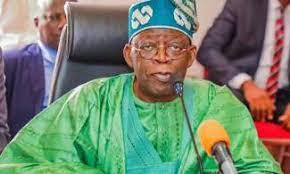The Deputy Secretary‑General of United Nations (UN) Ms Amina Mohammed said the organisation is only in support of checks and balances on the issue of hate speech and not death penalty as is being advocated Nigeria.
Fielding questions from State House correspondents after a close-door meeting with President Muhammadu Buhari at the Presidential Villa in Abuja Tuesday, the UN top official said there’s no doubt that the social media needs some checks and balances.
She said hate speech has reached all time high, hence the need for checks and balances.
“First, we need to know that globally, we are in a space that hate speech has reached an all-time high and so any checks and balances we can put into the society, into a country, into a region to bring an end to that is welcome.
“Again, the way the legislation is being followed to try to put that in place, I think is commendable. We, of course, did not support the death penalty and I am also happy to see yesterday (Monday) that portion was taken out of the legislation that was being put forward.
The Secretary-General had also put in place a special committee on ending hate speech. So there is a strategy for that now and we are looking at that globally.
“I think this framework is important for multilateralism and we can go much further if we do these things together many of these issues are across borders through technologies,” he said.
On what the UN was doing to bridge the gap in technology between developed and developing countries in the spirit of ensuring no one is left behind, especially with the migration to 5G, Mohammed said Nigeria must not make profit from the technology at the expense of the environment.
She said: “It’s (5G) a good side to technology, there is a side that is not too good, and all we need is to put in place checks and balances to ensure that it doesn’t do any harm to people which we see of course that hate speech is doing every day.
“With technology, of course, this is a thing of the future, it would be about cities, it will be about people and it will be about technology and here, Nigeria can leapfrog in terms of how we now look at education, what is the skill set that we teach our children? Whereas before we might have been going through a road curriculum, today we will be thinking about coding for children and it becomes the norm.
“I think we have to look at education again, look at the curriculum, see what sort of investments we need so our young people are able to have the skills necessary to join that world of technology that is the line I want us to leapfrog.
“Of course, telecommunications is incredibly important. It’s important that we have 5G, it is an incredibly fast technology but at the same time we have to make sure that the climate footprint is recognised because 5G comes with enormous usage of water and also power.
“And in both cases we have to find ways to balance that so that you are profiting from the technology but not at the expense of the environment which you know now that climate change is a big part of our existential threat.”



